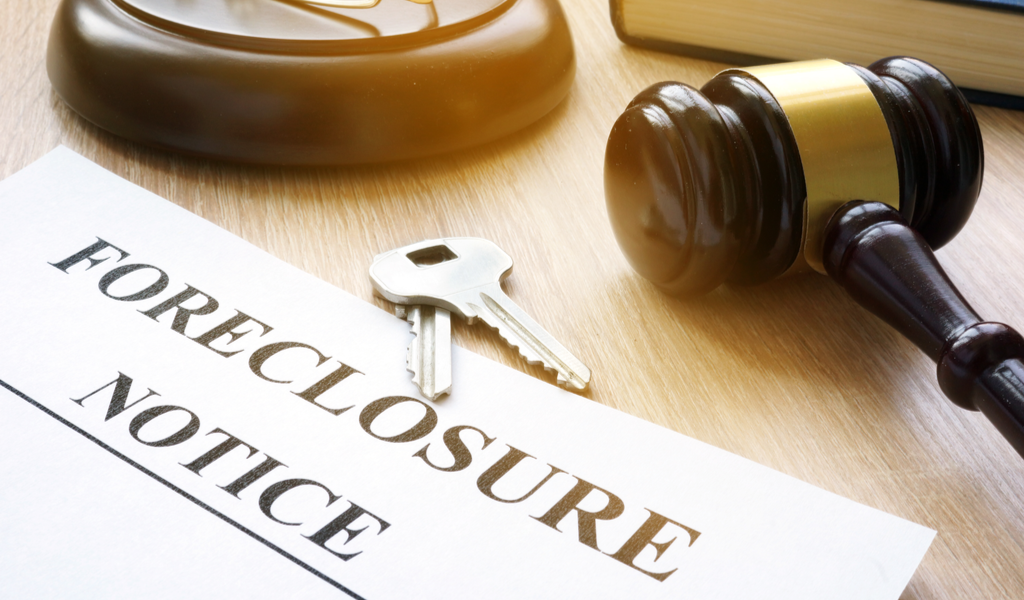The housing crisis that devastated the world in 2008 left lasting impressions on governments and citizens of many countries. One of the only positives to come out of it was that governments came up with different programs to help struggling homeowners.
Unfortunately, although not surprisingly, scam artists have also taken this to their advantage and have thought up their own ways to trick people who are already struggling to make ends meet. Therefore, people who are behind on their mortgages and are looking to foreclose are vulnerable to such monsters.
Here are some of the most common types of foreclosure scams that you may come across:

Fake Consultants
New companies have sprung up all over the place calling themselves things like “loan modification consultants” or “foreclosure consultants”. These scammers charge massive fees upfront and provide little to no genuine assistance to the homeowner.
Address Change Scam
Other recorded scam cases have reported that these fraudsters provide a new address and ask the homeowners to send their mortgage payments there. The scammer then collects these payments and disappears after a few months.
Title Transfer Scam
This is a particular devious scam that causes the homeowner to lose his property. The “foreclosure rescue company” tricks the borrower into signing the title of the home over to them. While they promise it will be transferred back at the end of the process, the scammer may come up with a myriad of reasons to not do that. Not only that, but the homeowner ends up living as a renter in their own house and is vulnerable to eviction at any time through foreclosure by the original lender or the scam artist!

It may seem like any kind of help is a blessing when you are struggling to keep control of those piling bills, but be sure not to fall prey to these scams. We’ll help you out a bit so you can keep your eye out for the genuine and the not-so-genuine programs.
Don’t Pay Upfront
If a consultant is asking you to pay a fee before providing any service, avoid them at all costs. There have been numerous reports of fraudsters charging fees ranging from $300 to $3000. HUD-approved housing counselors do not charge anything to provide foreclosure prevention counseling services, let alone hundreds or thousands of dollars. After all, these are supposed to be nonprofit organizations!
Be Careful When Sending Your Mortgage to a New Address
The payment address for where to send your mortgage can legitimately change in events such as your mortgage company being acquired by another financial institution, or if you refinance your loan with a new company. However, most often than not, your mortgage should go to the same place it always has.
If your foreclosure prevention expert is asking you to change the payment address of your mortgage, it’s time to put those antennas up. The best thing to do would be to call your mortgage company personally and verify the payment address before sending it.
If You Don’t Understand It, Don’t Sign It
Go through any paperwork that requires you to sign it thoroughly and make sure you understand every word of it before putting pen to paper. In particular, you should check that what is written is the same as what your consultant told you. If the document has any blanks or spaces to be filled at a later date by the consultant, do not sign! A foreclosure consultant should also never ask you to sign your property over as part of a mortgage rescue, so there is no legitimate reason for them to ask you to do that.
Check HUD Status of the Counselor
Make sure your counselor is reliable before taking any advice from them. They should be from a HUD-approved nonprofit organization. You can verify their HUD approval through the website http://www.hud.gov/offices/hsg/sfh/hcc/hcs.cfm or call them up at 877-HUD-1515 for more details. It would be even better if your housing counselor is a member of the Better Business Bureau. You can get a Business Reliability Report on any business or industry (regardless of whether they are a member or not) at bbb.org.
Rely on Trusted Sources
A HUD-approved housing counselor is the only one, other than your original lender/service, that can directly answer all your questions and give you advice. Do not go looking for advice in unreliable sources!



